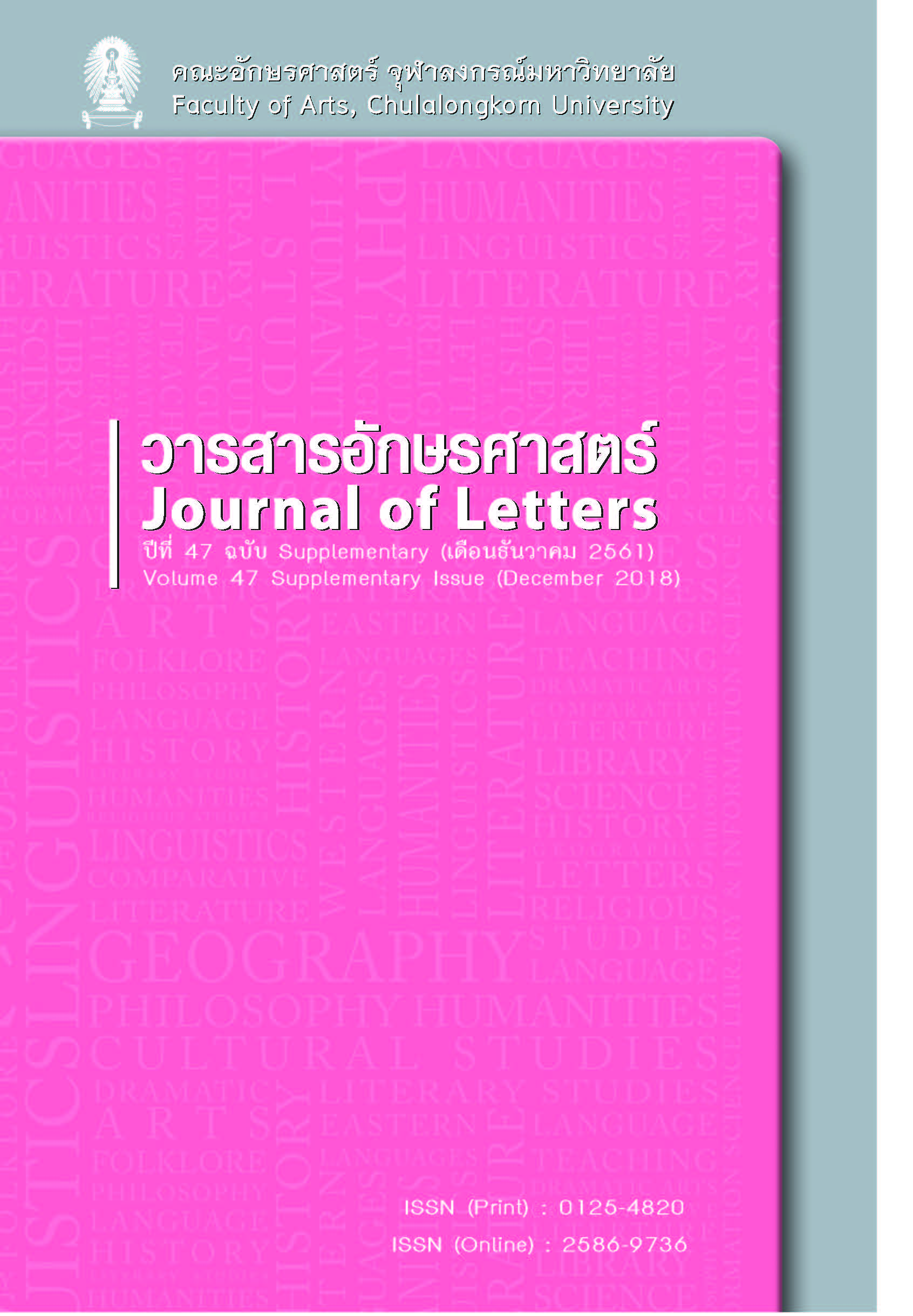Counter-Realities. Impulses for a New Didactics of Literary History
Keywords:
literature, literary history, literature didactics, didactics of foreign languages, intercultural competenceAbstract
The article aims to give a fresh impetus to the didactics of literary history. For decades literary history has been criticized by literary scholars and educationalists: Poststructuralist and deconstructivist theories often consider it obsolete, and the didactics of literature emphasizes the difficulty of operationalizing, in accordance with a competence-oriented education, a specific literary-historical competence. Following, more or less implicitly, literary theories such as New Historicism, this article points out the remaining or even growing relevance of literary history within language arts and philologies in general, but specifically within German studies abroad. Teaching literary history is conceptualized as highlighting the cultural implications of the text (instead of teaching literary or historical eras), thus the understanding of a text remains incomplete without recognizing these social and historical implications. The article outlines the crucial role the cultural context plays in dealing with literary texts by focusing on eight competences (presented in pairs): understanding otherness (Fremdverstehen) and identity competence; critical judgment and argumentation competence; differentiated text comprehension and analytical thinking; creative thinking and aesthetic sensibility. Furthermore, this concept of teaching literary history is strongly linked to intermediality studies. It eventually calls for new curricula.
References
Abraham, Ulf. 2015. Literarisches Lernen in kulturwissenschaftlicher Sicht. Leseräume 2: 6-15. https://leseräume.de/wp-content/uploads/2015/10/ lr-2015-1-abraham.pdf, abgerufen am 07.09.2018.
Asmuth, Gereon. 2018. Die Kunst ist eine Scheibe Brot: Hashtag #KunstGeschichteAlsBrotbelag. https://www.taz.de/!5523056, abgerufen am 07.09.2018.
Baßler, Moritz. 2001. Einleitung: New Historicism – Literaturgeschichte als Poetik der Kultur. In New Historicism: Literaturgeschichte als Poetik der Kultur (2. Aufl.), hg. v. Moritz Baßler, 7-28. Tübingen/Basel: Francke.
Brinitzer, M. et al. 2016. DaF unterrichten. Basiswissen Didaktik Deutsch als Fremd- und Zweitsprache (2. Aufl.). Stuttgart: Klett.
Hurrelmann, Bettina. 2002. Leseleistung – Lesekompetenz: Folgerungen aus PISA, mit einem Plädoyer für ein didaktisches Konzept des Lesens als kultureller Praxis. Praxis Deutsch 176: 6-18.
Kepser, Matthis und Abraham, Ulf. 2016. Literaturdidaktik Deutsch: Eine Einführung (4. Aufl.). Berlin: Erich Schmidt Verlag.
Korte, Hermann. 2002. Historische Kanonforschung und Verfahren der Text-auswahl. In Grundzüge der Literaturdidaktik, hg. v. Klaus-Michael Bogdal und Hermann Korte, 61-77. München: Deutscher Taschenbuch Verlag.
Korte, Hermann. 2012. Ein schwieriges Geschäft: Zum Umgang mit Literatur¬geschichte in der Schule. In Texte zur Theorie und Didaktik der Literatur¬geschichte, hg. v. Marja Rauch und Achim Geisenhanslücke, 301-317. Stuttgart: Reclam.
Scheller, Ingo. 1996. Szenische Interpretation. Praxis Deutsch 136: 22-32.
Scheller, Ingo. 2010. Szenische Interpretation: Theorie und Praxis eines handlungs- und erfahrungsbezogenen Literaturunterrichts in Sekundar-stufe I und II (3. Aufl.). Seelze: Kallmeyer.
Spinner, Kaspar H. 1999. Produktive Verfahren im Literaturunterricht. In Neue Wege im Literaturunterricht: Informationen, Hintergründe, Arbeitsan¬regungen, hg. v. Kaspar H. Spinner, 33-41. Hannover: Schroedel.
Spinner, Kaspar H. 2006. Literarisches Lernen. Praxis Deutsch 200: 6-16.
Spinner, Kaspar H. 2015. Elf Aspekte auf dem Prüfstand: Verbirgt sich in den elf Aspekten literarisches Lernen eine Systematik? Leseräume 2: 188-194. https://leseräume.de/wp-content/uploads/2015/10/lr-2015-1-spinner.pdf, abgerufen am 07.09.2018.
Downloads
Published
How to Cite
Issue
Section
License
Copyright and plagiarism
Authors are responsible for obtaining permission to use copyrighted materials from copyright owners. Authors are responsible for observing requisite copyright law when quoting or reproducing copyrighted materials. Quotations and reproductions of content from other published sources must be accompanied by a reference and all sources should be clearly listed in the references section. Quotations and reproductions of content from external sources without due attribution could be considered a severe infringement of academic conduct and may constitute a legal offence under the Copyright Act of B.E. 2537. Any legal ramifications arising from the infringement of copyright regulations would be the sole responsibility of the author(s).



